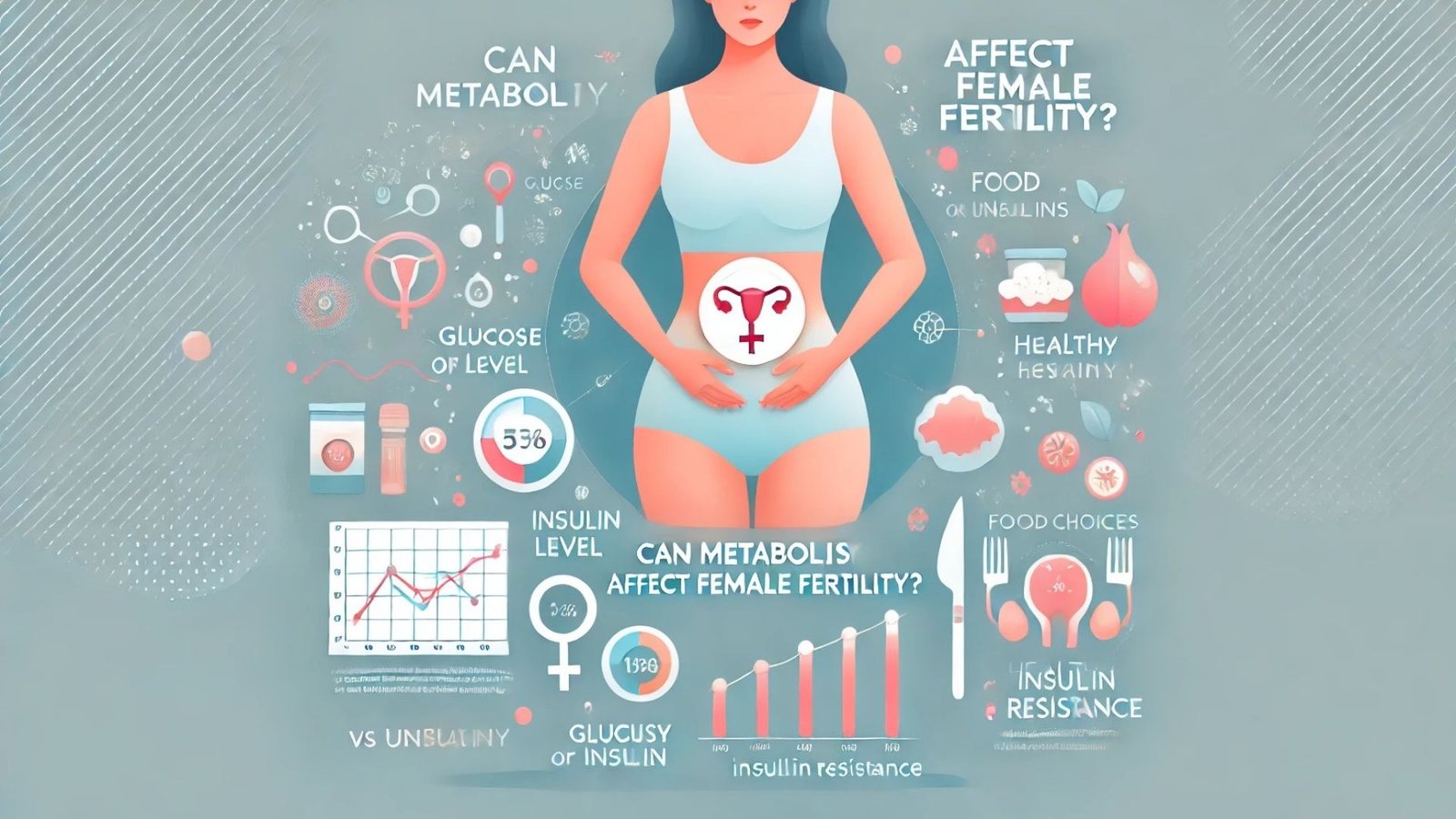Introduction: The Infertility Puzzle—And Why Metabolism Matters
Infertility is a heartbreaking struggle for millions of women worldwide. In fact, up to 15% of women of reproductive age experience difficulties getting pregnant. While many assume infertility is solely a hormonal issue, science is uncovering a surprising metabolic connection that could hold the key to better reproductive health.
Did you know that your insulin levels could be playing a secret role in fertility? Many women, especially those with Polycystic Ovary Syndrome (PCOS), experience issues with insulin resistance, which can disrupt ovulation, egg quality, and even implantation.
So, if you’re trying to conceive or simply want to optimize your reproductive health, it’s time to talk metabolism, insulin, and fertility. Let’s break it down in a way that makes sense—without all the confusing medical jargon!
What Is Insulin Resistance (And Why Should You Care?)
Before we dive into its effects on fertility, let’s do a quick refresher on insulin resistance.
🔹 Insulin is a hormone that helps regulate blood sugar by signaling cells to absorb glucose for energy.
🔹 When the body becomes insulin resistant, certain cells stop responding properly to insulin.
🔹 This forces the pancreas to produce even more insulin, leading to high insulin levels in the blood.
Now, you might be thinking: “Wait, isn’t insulin related to diabetes?” You’re absolutely right! But here’s the shocking part—insulin resistance can wreak havoc long before diabetes develops, affecting metabolism, hormone balance, and, yes, fertility.
nsulin Resistance & Fertility: A Not-So-Obvious Connection
Okay, so what does insulin have to do with getting pregnant? More than you think!
🚨 Too much insulin = reproductive chaos.
When insulin resistance occurs, it can:
✅ Disrupt ovulation by interfering with hormone signals.
✅ Lower egg quality by increasing oxidative stress.
✅ Hinder implantation by thickening the uterine lining irregularly.
In simpler terms? Your body needs balanced insulin levels for smooth reproductive functioning. When insulin goes haywire, fertility often follows suit.
PCOS: The Infertility Culprit That Loves Insulin Resistance
If you’ve ever heard of Polycystic Ovary Syndrome (PCOS), you know it’s one of the leading causes of female infertility. But here’s the twist—PCOS isn’t just a hormone disorder. It’s deeply rooted in metabolism.
🧬 How PCOS and insulin resistance are linked:
- Up to 80% of women with PCOS have some form of insulin resistance.
- Insulin resistance increases testosterone levels, leading to symptoms like acne, excess body hair, and irregular periods.
- It also prevents normal ovulation, making conception difficult.
📌 What about the cysts?
Those “cysts” in PCOS aren’t actual cysts. They are underdeveloped follicles that get stuck due to disrupted ovulation. And guess what? High insulin levels play a major role in this cycle of hormonal imbalance.
So, if you have PCOS and struggle with fertility, addressing insulin resistance should be priority #1!
Can Improving Insulin Sensitivity Boost Fertility?
Short answer? YES.
Lowering insulin resistance has been shown to:
✅ Restore regular ovulation
✅ Improve egg quality
✅ Enhance implantation success
✅ Reduce PCOS symptoms
This is why many doctors prescribe metformin, a medication that helps improve insulin sensitivity, to women with PCOS—even if they’re not diabetic.
But here’s the thing: Diet and lifestyle changes can be even more effective than medication!
What’s the Best Diet for Insulin-Friendly Fertility?
So, how can you improve insulin sensitivity and boost fertility naturally? Let’s talk food!
🥑 Best Diet Tips for Insulin Resistance & Fertility:
💡 Reduce refined carbs & sugar: Cut back on white bread, pasta, soda, and sweets. These spike insulin and worsen resistance.
💡 Eat more protein & healthy fats: Think eggs, avocado, nuts, and fatty fish like salmon. They help stabilize blood sugar.
💡 Try a low-glycemic diet: Focus on whole foods like vegetables, berries, quinoa, and beans that release sugar slowly.
💡 Consider going keto or low-carb: Studies show that ketogenic diets can dramatically improve insulin resistance and PCOS symptoms.
🔍 Did you know?
A small study found that when women with PCOS followed a low-carb diet, many saw significant improvements in menstrual cycles, hormone levels, and even weight loss. Some even got pregnant during the study!
Exercise & Lifestyle: The Fertility Boosters You Didn’t Know You Needed
Diet is only part of the equation. Your daily habits also play a huge role in insulin sensitivity and fertility.
💪 Best Lifestyle Tips for Better Insulin & Fertility:
✔ Strength training (like weightlifting) helps burn glucose and improve insulin sensitivity.
✔ Walking after meals can lower blood sugar naturally.
✔ Intermittent fasting may help reduce insulin resistance (but check with your doctor first).
✔ Reducing stress lowers cortisol, which in turn stabilizes insulin levels.
Even small changes—like getting enough sleep, staying hydrated, and managing stress—can help your metabolism and fertility thrive.
The Takeaway: More Knowledge, Better Health
Infertility is complex, but science is making it clearer that insulin resistance is a major piece of the puzzle.
If you’re struggling with fertility, don’t just focus on hormones—look at your metabolism, too! Addressing insulin resistance through diet, exercise, and lifestyle changes could be the game-changer your body needs.
💡 Final thought: If you or someone you love is dealing with PCOS, irregular periods, or unexplained infertility, it might be worth checking insulin levels and exploring metabolic health as a fertility solution.
Because when we know better, we do better! 💕

